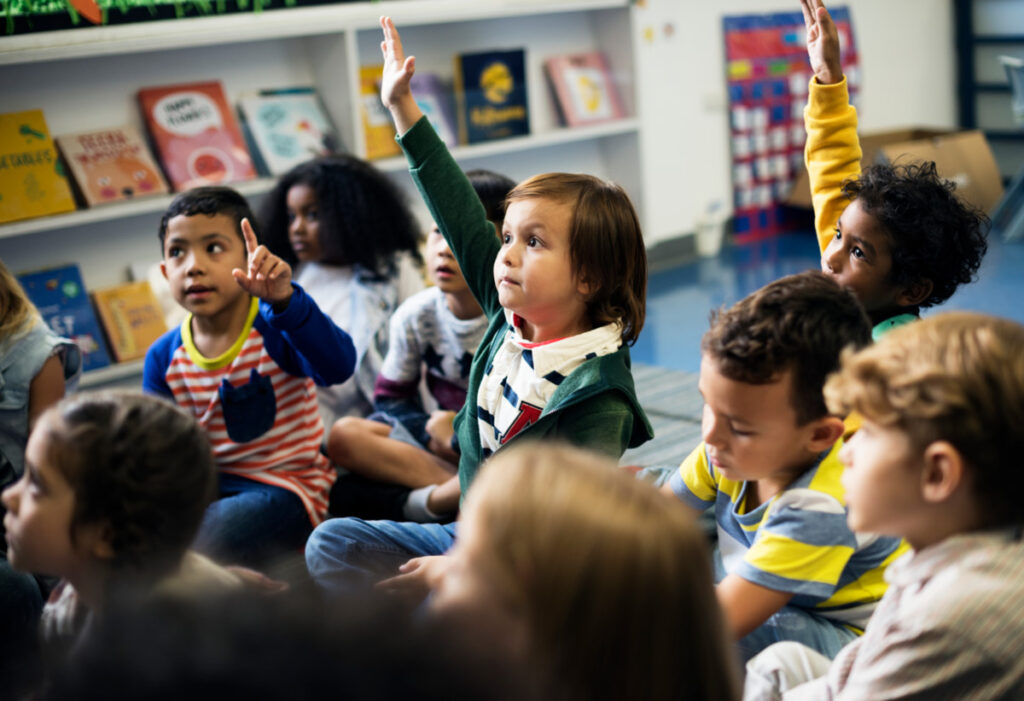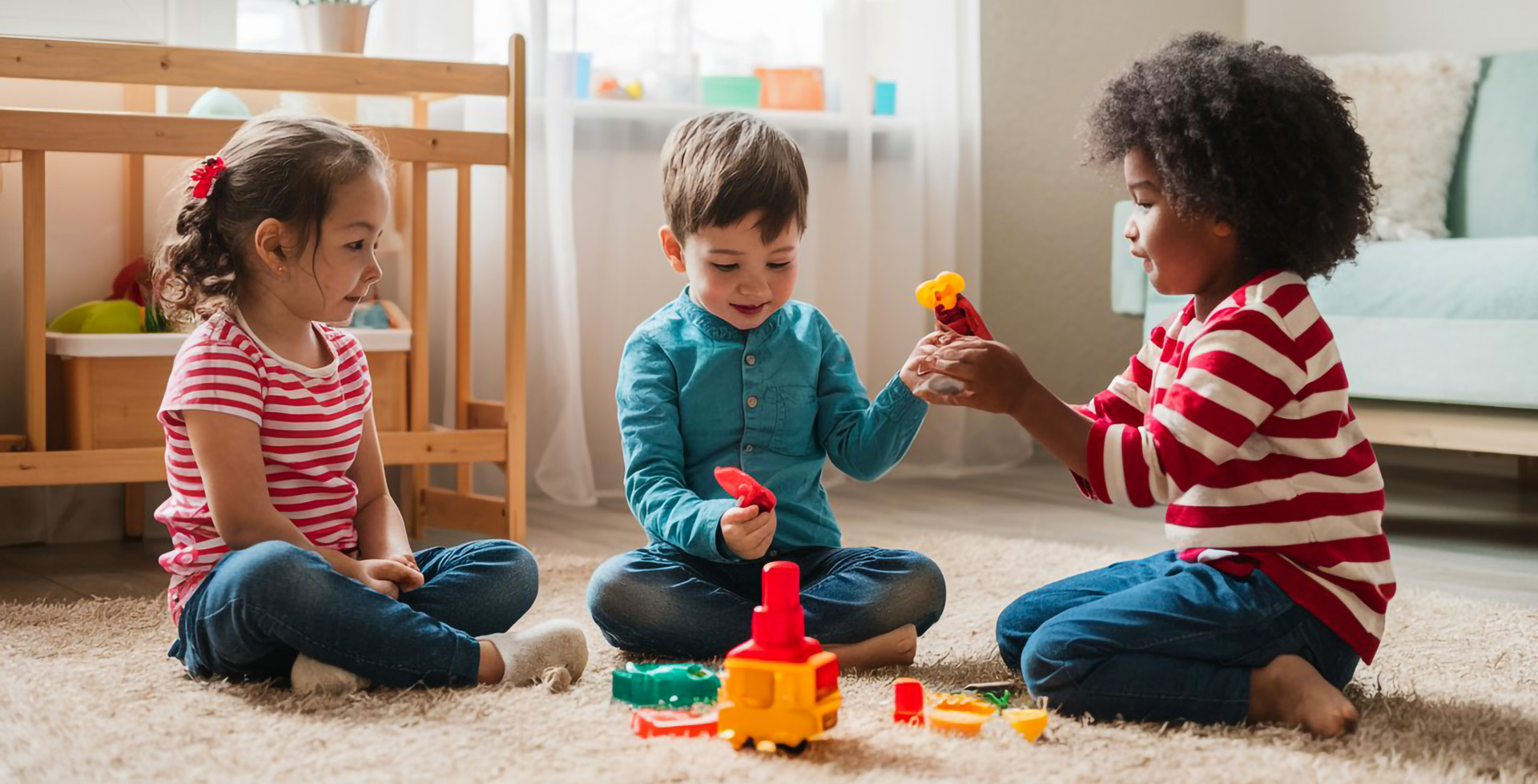The first day of kindergarten is a significant milestone in a child’s and parent’s life. For some children, it’s the first time they’ve spent time in a classroom setting at length; for others, it’s a big step forward from their daycare or preschool experience.
While some academic basics are helpful (see #3), we feel age-appropriate social and emotional skills are the most important for children to establish before starting kindergarten. If your child is neurodivergent or has other special needs, speak to your pediatrician about the programs and resources available to ensure they have an equitable start and the support they need.
5 Things You Can Do To Prepare Your Child (& Household) For Kindergarten Success
We understand that summer is a busy time for families, especially if you have older children. That said, these next two months offer a perfect opportunity for parents and families to begin setting the stage for kindergarten success.
Dr. Heather Larson shares her recommendations to help you and your kiddo prepare for kindergarten. As a parent of a soon-to-be Kindergartener herself, you can bet she is using all these tips in her household this summer! The whole caring team at PANW is here to answer questions, provide resources, and support you in any way we can.
1. Value EQ over IQ at This Stage of the Game
We understand that the academic arena feels more competitive than ever. However, at this stage of the game, a child’s emotional and social development are larger signifiers of how they’ll fare in school than their ability to read or do higher-level math.
Your child will feel better about themselves and their kindergarten experience if they know how to:
- Take turns and share (we prefer the term “take turns” rather than sharing, which is a hard concept for children to grasp at this age.)
- Recognize and say what they’re feeling (you can help model this by naming your feelings, keeping it simple with “mad, sad, glad, or afraid,” and then talk about what you do when experiencing those feelings).
- Vent anger/frustration in healthy rather than highly volatile/reactive ways. Does your child have “big emotions?” That’s totally normal, and we’re here to help. Talk to us about our Circle Of Security Parenting Groups, where you can learn more about what is happening developmentally and how to best support your child.
- Follow instructions.
- Sit still and focus for several minutes at a time (most kindergarten activities are broken into shorter spans to honor a five-year-old’s attention span).
- Play cooperatively in small groups (if your child is an introvert, start by arranging one-on-one or small group playdates to support their interaction/inclusion with others).
2. Begin Integrating the New Schedule Into Your Routine
For some, the new schedule may be identical to the daycare/preschool routine. In that case, we recommend slipping back into the workday/school day night/bedtime routine at least two or three weeks before school starts so your child is used to it and well-rested.
Start practicing now if getting to kindergarten on time will be a big change in the morning routine. That may look like:
- Accommodating daily sleep needs by adjusting bedtime/wake time. The kindergartener needs about 9 to 12 hours of sleep per night. If this requires a notably earlier-than-normal bedtime, adjust bedtime by 15 minutes every several days until the new pattern is set.
- Setting clothes out for the next day. Establishing this habit now makes it easier to get out the door faster during the school week.
- Make the next day’s snacks and lunch together so they’re ready for you to grab and go before you head out the door.
- Working on independent skills each day so they can feel empowered to take care of their needs when you’re not there (more on that in #4).
- Start planning five to 10 minutes of “special time” into your day. Just these few minutes of focused time (phone-free!) with your child goes a long way towards the separation anxiety they may feel after being at school all day.
Easing into the new routine at least a month or two before school starts eliminates the abrupt transitions that make it harder for children to adjust.
If the school offers a kindergarten orientation, tour, or other events to familiarize new students with classrooms or teachers, make it a priority to attend whenever possible. Having an idea of where they’ll be going, meeting their teacher(s), and meeting some of the other kids goes a long way toward helping new kinder students feel more confident and comfortable.
3. Rest Assured, the Academic Basics Are Enough
We do value social/emotional skills more than academic skills at this age. That said, children fare best in kindergarten when they’re familiar with the basics. Help to ensure your child can:
- Say the entire alphabet.
- Recognize all or most of the letters.
- Knows some, if not most/all, of their letter sounds/phonics.
- Count to 10 or 20.
This does not mean that your child should be able to read fluently or understand that 4+5=9. If they have the basic bullet points down, everything else will fall into place over time in the classroom.
Even better than a basic “academic foundation” is sharing a family-wide appreciation and value for learning. Take this “always learning” mentality wherever you go:
- Learn to identify local flowers, trees, birds, bugs, etc., when you’re out on walks or hikes.
- Choose to learn about constellations and then the stories about them from other cultures.
- Research people, time periods, places, etc., that appear in your children’s favorite books or stories together.
- Memorize simple poems or favorite quotes/sentences from books.
When we foster curiosity in ourselves and our children, we automatically instill a positive association with learning.
4. Focus on Independent Skills & Communication
Sometimes, we parents lose sight of how much we do for our children until they are without us at daycare, or we learn about it from their teachers. By the time your child starts kindergarten, they’ll feel more confident and less self-conscious if they can:
- Put on their own shoes (most kiddos can learn to tie shoes at around age 5 or 6, but some take a year or two longer. If yours is in the latter category, slip-ons and velcro are the way to go for school shoes).
- Put on their own jackets (including zippering).
- Complete all bathroom needs without help, from undoing snaps/zippers/buttons to proper wiping, to washing/drying their hands, to refastening snaps/zippers/buttons.
- Ask their teacher/aide or other classroom adults for what they need.
- Express how they’re feeling (especially if they’re mad, sad, or afraid) to their teacher or a peer to get support.
This “big kid” readiness boosts self-esteem and minimizes opportunities for embarrassing accidents.
5. Be Prepared For Some Challenging Moments Ahead
This can be true for children at every age, but the transition into kindergarten is a big one for kids. The impact of this can show up in ways you weren’t expecting. During the first couple weeks or months of school, your child may be more cranky and irritable than usual. They may be so exhausted that they need to go to bed even earlier than you planned for a while (especially if they were nappers in the past).
Sometimes, children can seem to regress as they adjust to all of the new changes and experiences, which can mean wetting their pants at school (most kindergarten teachers ask for a change of clothes to be on hand), nighttime bedwetting, or tantrum-throwing. You may also notice they bring home new language and ideas, providing fodder for many family dinner table conversations.
PANW Is Here to Support Your Family’s Kindergarten Transition
The pediatricians and nurses at Pediatric Associates of the Northwest are your reliable support system as your family transitions into kindergarten life. Please feel free to contact us anytime you have a question or want to check in about something you’re noticing as your child starts their new school life. We’re here to support you in any way we can.





